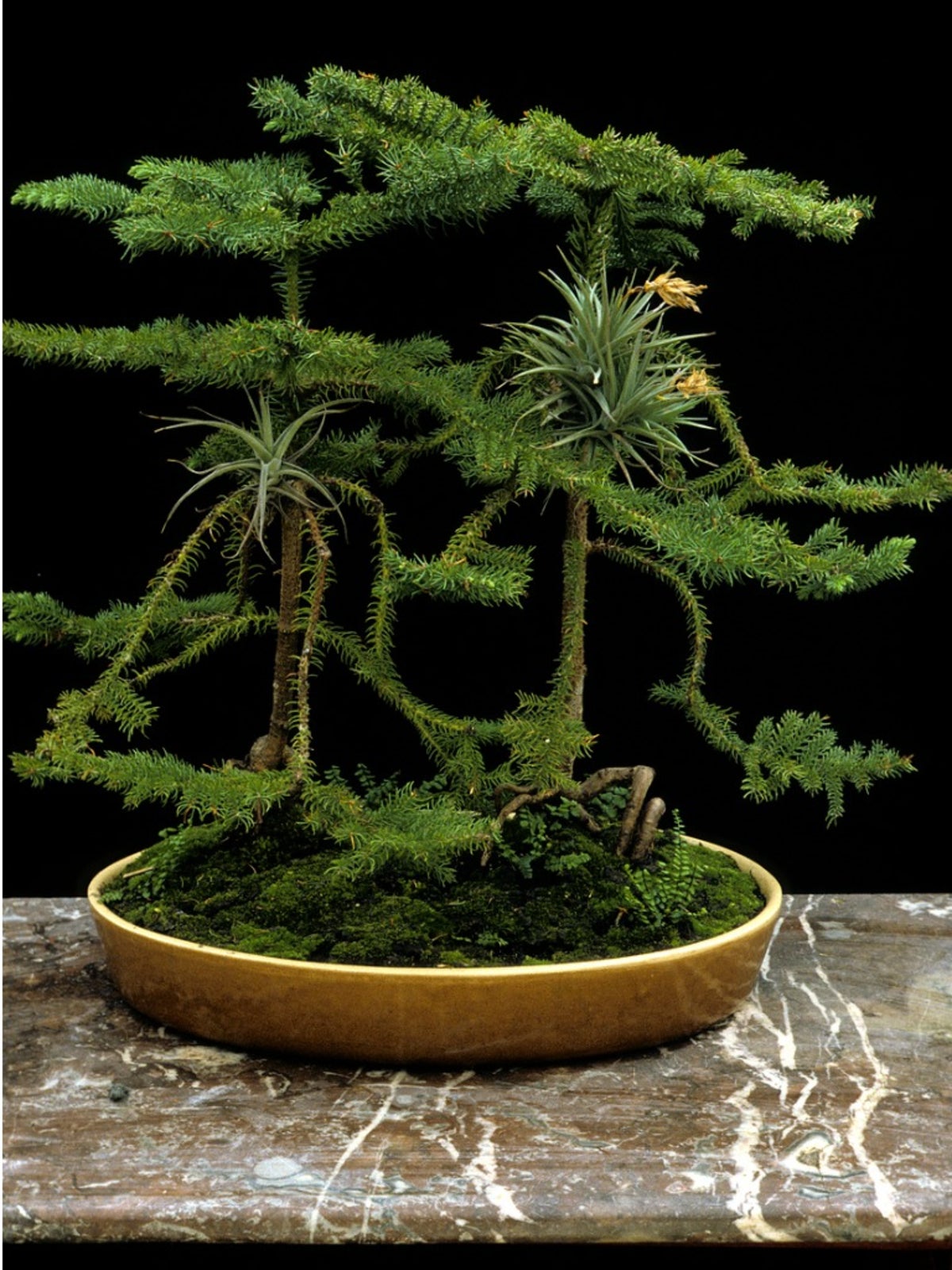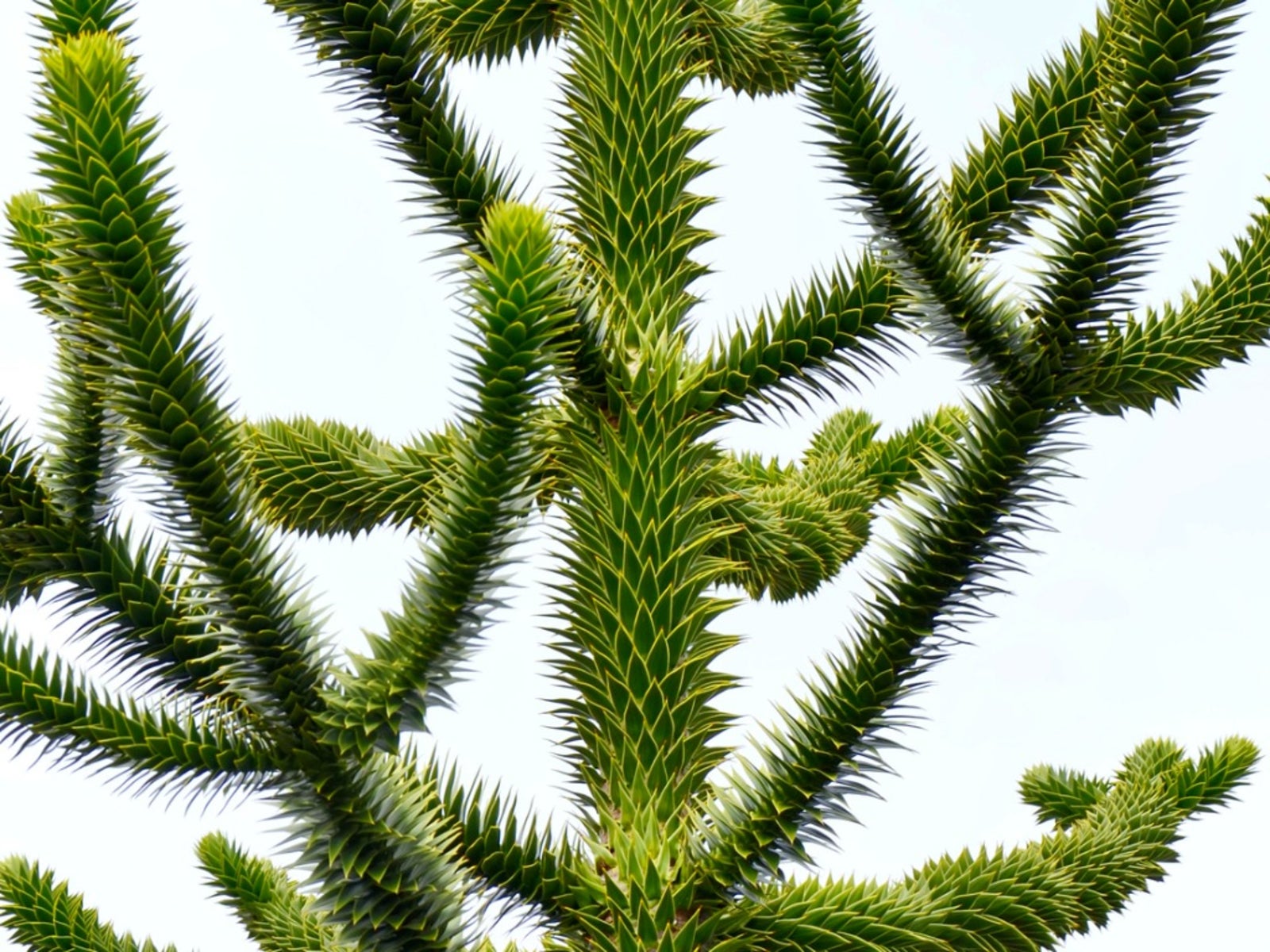Monkey Puzzle Indoors: How To Grow A Monkey Puzzle Houseplant


If you're looking for something different to grow as a houseplant or an outdoor container plant, consider the monkey puzzle tree (Araucaria araucana). Many of you are likely not familiar with the name and are wondering, "What is a monkey puzzle tree?" It is an unusual, slow growing coniferous tree, but that is only part of the answer. Read more to learn what is a monkey puzzle tree and how to grow monkey puzzle indoors.
What Is a Monkey Puzzle Tree?
The monkey puzzle tree has shiny, tough foliage with spiky, sharp tips that grow upward in whorls. With an open and airy habit, large cones appear on both male and female specimens. This plant is large, unusual, and sometimes described as frightening. Other descriptions of the monkey puzzle plants include grotesque, out of this world, and beautiful. Monkey puzzle grows outside in USDA zones 7b through 11, but for those in other areas, an alternative is learning how to grow monkey puzzle houseplant. Related to the more familiar Norfolk Island pine that grows well in containers and is often used as a Christmas tree, growing monkey puzzles in containers is similar to caring for this tree. Both are slow growers and benefit from keeping soils moist, but never soggy.
Growing Monkey Puzzle Indoors
Choose the right pot size when growing monkey puzzles in containers. Size of the pot will determine how big the monkey puzzle indoors becomes. In their natural state, monkey puzzle trees become as tall as 60 to 70 feet (18-21 m.) with a spread as wide as 35 feet (11 m.). Plant the small specimen in a well-draining houseplant mix. Locate growing monkey puzzles in containers near a sunny, south or west facing window.
Caring for a Monkey Puzzle Tree
Keep the soil moist. Caring for a monkey puzzle tree includes monthly fertilization with a balanced houseplant food. Use a micro-nutrient spray once or twice yearly. When growing monkey puzzles in containers, you may notice new growth that is pale in color. This indicates that more fertilizer is needed. Stop feeding monkey puzzle indoors during winter months to allow for a period of dormancy. Do not prune growing branches when caring for a monkey puzzle tree. The exception will be when lower branches begin dying off later in the plant's life. These should be removed. When growing monkey puzzles in containers, repotting may be necessary in a few years. Move to a bigger container and consider lightly pruning the roots before repotting to limit growth of this large tree. As with the Norfolk pine, monkey puzzle indoors do not like to be moved. If you see a webby substance between the leaves, you have spider mites on the plant. Isolate the plant and move outdoors if necessary. Treat with insecticidal soap or neem oil.
Gardening tips, videos, info and more delivered right to your inbox!
Sign up for the Gardening Know How newsletter today and receive a free copy of our e-book "How to Grow Delicious Tomatoes".

Becca Badgett was a regular contributor to Gardening Know How for ten years. Co-author of the book How to Grow an EMERGENCY Garden, Becca specializes in succulent and cactus gardening.
-
 Looking For Plants To Give You The Soft And Fuzzies? Try These 5 Fuzzy Leaf Plant Options
Looking For Plants To Give You The Soft And Fuzzies? Try These 5 Fuzzy Leaf Plant OptionsLovers of texture, drama, silver foliage and tactile plants will adore these special sensory garden additions. These fuzzy leaf plant options will leave you all aglow
By Susan Albert
-
 Get Ready For A Summer Of Hummers! Grow These Full Sun Hummingbird Plants and Flowers
Get Ready For A Summer Of Hummers! Grow These Full Sun Hummingbird Plants and FlowersIf you’re lucky enough to enjoy a sunny backyard, make sure you are maxing out on your pollinator opportunities and grow these full sun hummingbird plants and flowers
By Tonya Barnett
